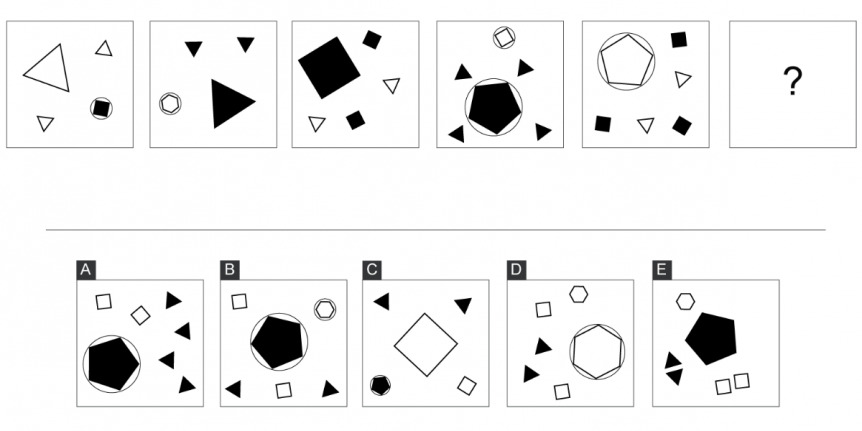I was prompted to write this after several recent experiences of clients and enquirers asking why they should take abstract reasoning scores seriously and even asking for the test to be removed from the ability test battery so they could concentrate on numerical, verbal and checking scores.
The common theme in all these conversations was that the value of how a candidate works with numbers and words is obvious to most hiring managers, yet how a candidate follows patterns and trends in sequences of abstract shapes seemed; – abstract and less applicable to workplace effectiveness.
Abstract Reasoning certainly looks less obvious at face value, yet is one of the strongest indicators available of the likelihood of a candidate to succeed in a new job, and an even stronger indicator of how best to tailor induction and other training to suit the candidate.
High Scoring Candidates
Essentially, high scorers tend to quickly understand new concepts and ideas outside of their previous experience, so respond very well to training and development in new processes, systems and concepts. Employers have assurances that money, time and effort spent in training will bring likely positive results. High scorers also tend to be good at identifying patterns and possibilities in systems and processes, often bringing a valuable ‘fresh pair of eyes’ to long established processes or systems where day to day users have become blind to improvements to ‘the way things are done around here’.
When training high scorers, keep in mind that they are likely to readily grasp broad new concepts and less likely to need step-by-step training.
Low Scoring Strong Candidates
So, what should employers do with candidates who do well at interview, reference checking, numerical, verbal reasoning, then get a very low abstract reasoning test score?
A low abstract reasoning test score should not prevent a candidate from getting a job offer, unless a core part of the job requires them to frequently comprehend and use new complex systems and processes.
However, employers need to adjust the way low scorers are trained and developed. Self directed e-learning may not be appropriate and employers should consider using step-by-step approaches rather than broad concepts, both during induction and when significant change occurs later in employment.
When to Use Abstract Reasoning Tests
So, using abstract reasoning does require a small leap of faith on the part of recruiting managers who don’t see the immediate tangible application of shapes and patterns in the workplace, but these tests add considerable value to a wide range of roles, and especially:
- Frontline processing and manufacturing staff
- Administrative roles
- Engineering & Technical roles
- IT, Helpdesk & Web Developer roles
- All Graduate recruitment
Keep in mind that Abstract Reasoning Tests are usually part of Ability Test Suites, so are typically part of the package already. Recruiting managers just need to know how to use them in recruitment and development.
Give us a call to explore how Ability Testing can lift the effectiveness of your selection processes.
Related Tag: Psychometric Testing


